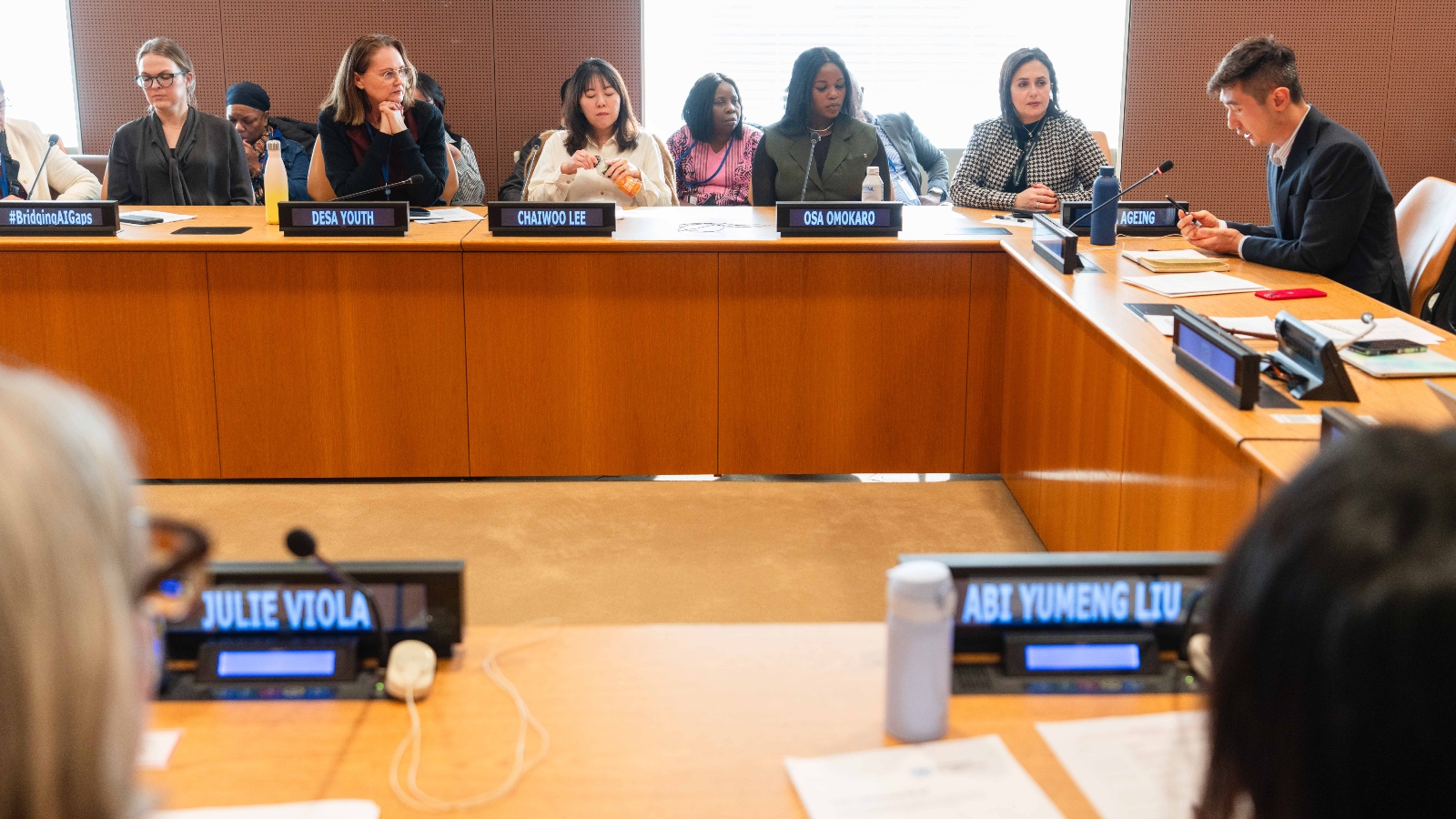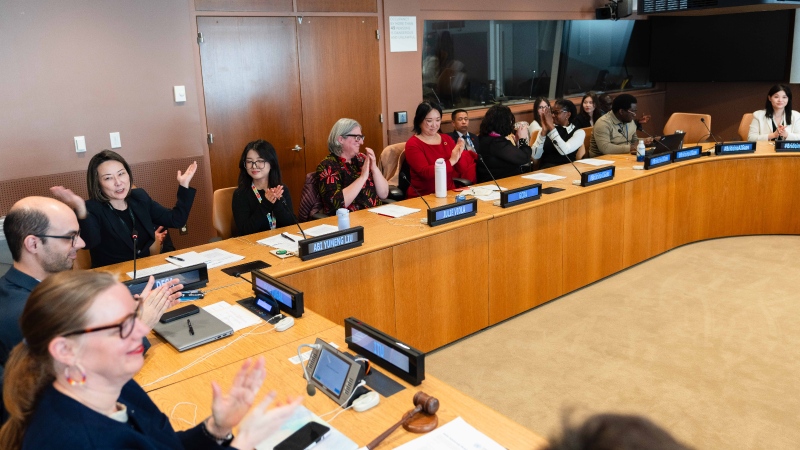
At the 63rd Commission of Social Development (CSocD63), the UN DESA Programmes on Youth and Ageing hosted the event Bridging the Intergenerational Equity Gap: Discussing Inequality in AI Access, Use, and Benefits. The discussion focused on ensuring equitable AI access, ethical development, and meaningful engagement across generations. The event was recorded and is available for viewing here.
Ms. Ursula Wynhoven from the ITU emphasized the need for inclusive AI development to bridge intergenerational equity gaps, highlighting ITU’s guidance efforts and the UN's joint advocacy brief. Mr. Stefano Guerra from Portugal’s Permanent Mission to the UN stressed the importance of digital literacy, ethical AI regulations, and prioritizing well-being and social justice over profit. Li Zhou from the OHCHR underscored the human right to participate in AI governance, as well as a life cycle approach to technology that considers its creation, use, and societal impact over time, mirroring the human life course.
Digital Literacy and Access Disparities
Significant disparities in AI preparedness exist across varying economies. Abi Yumeng Liu from the Programme on Youth Unit at UN DESA emphasized limited educational opportunities for youth in low-income regions, restricting their participation in the growing AI-driven labor market. She called for investment in AI and STEM education, its co-creation with marginalized groups, and global AI capacity-building networks.
Osa Omokaro, PhD and Founder and Co-chair of Tech Runway Africa, emphasized that intuitive user experiences empower individuals, cautioning that poor design can exclude older persons. She advocated for a user-centered design tailored to local cultural contexts and advocated for Africa to mine its own data in order to meet its local needs and have an increased role in technology creation globally.
Inclusive Design and Representation
Speakers highlighted the need for inclusive design and diverse representation in AI development. Chaiwoo Lee, PhD Research Scientist at MIT AgeLab, noted older adults' exclusion from design discussions, leading to access and acceptance gaps. Her research showed that older persons feel less confident using AI, particularly in social applications, but are open to the idea so they should be included as a target marketing audience. She emphasized the need for designs that accommodate generational differences and avoid one-size-fits-all solutions. Julie Viola, MHA and Founder of Cody Health Ventures, supported multigenerational teams in designing and auditing AI technologies and avoiding bias to promote health equity, which must be the cornerstone of AI implementation.
Ethics, Equity, and Trust in AI
Ethical considerations, equity, and trust in AI systems were emphasized. Viola advocated for AI regulations and educational initiatives to enhance transparency and trust. She highlighted that AI systems need improvement to consider social and personal factors for holistic healthcare and enhanced trust. Lee linked acceptance and trust in AI to effective communication and education about its capabilities and limitations, particularly for older adults.
Towards a Global, Inclusive AI Future
Speakers collectively called for human-centered design, cross-generational collaboration, and ethical AI practices to promote social justice and prevent bias. Masumi Ono from UN DESA closed the event, remarking that through these calls, AI systems can empower all individuals, ensuring that people of all ages benefit from technological advances.

Source: UN DESA
Photos ©SimiVijay
 Welcome to the United Nations
Welcome to the United Nations